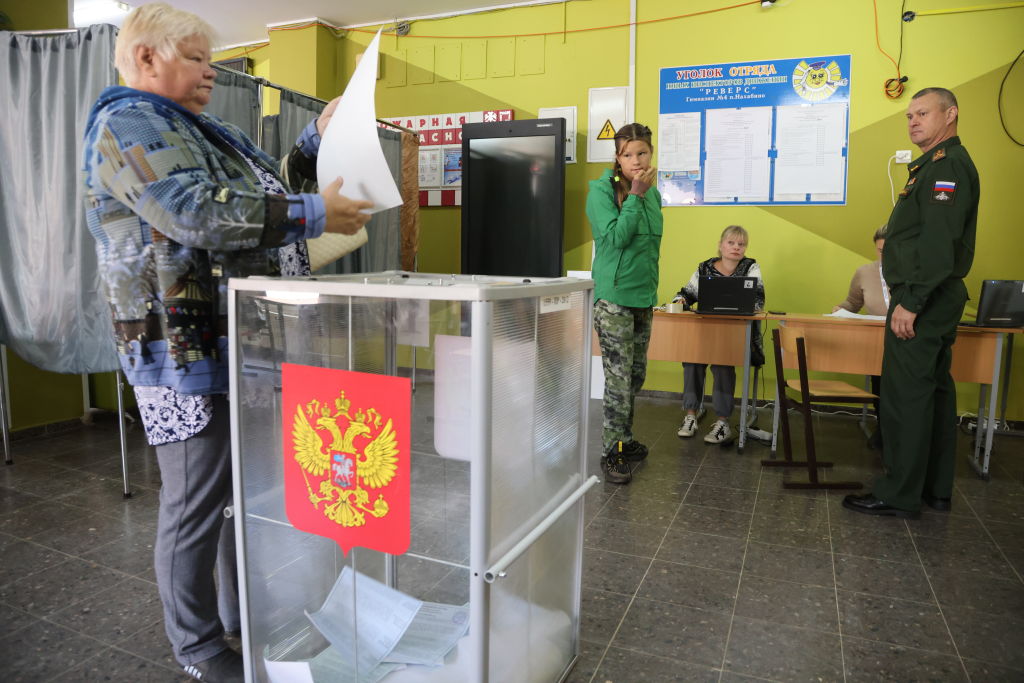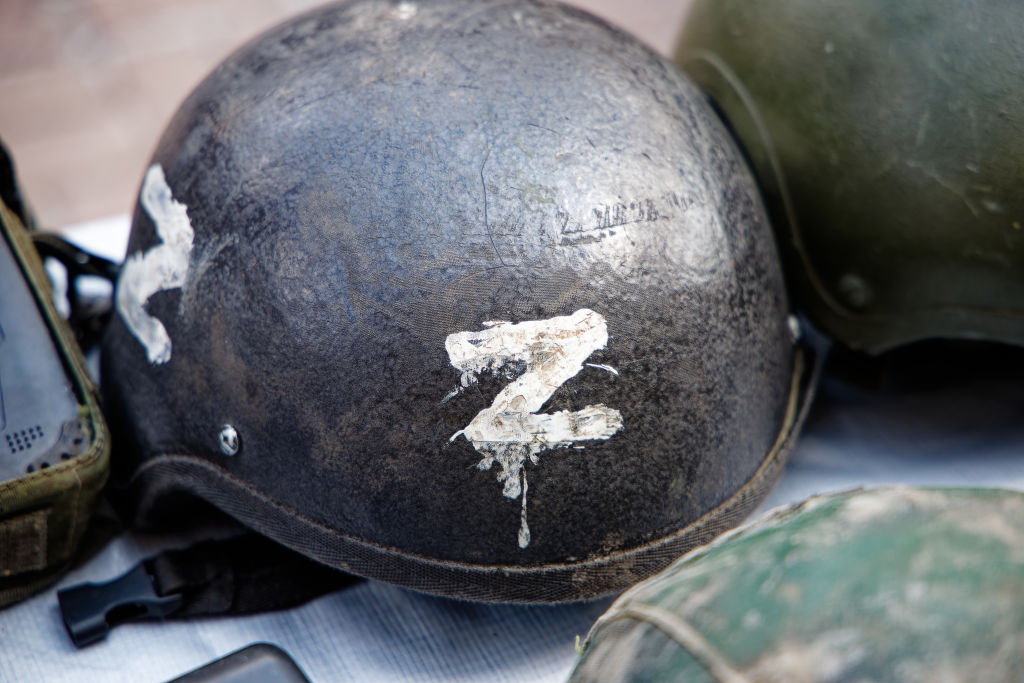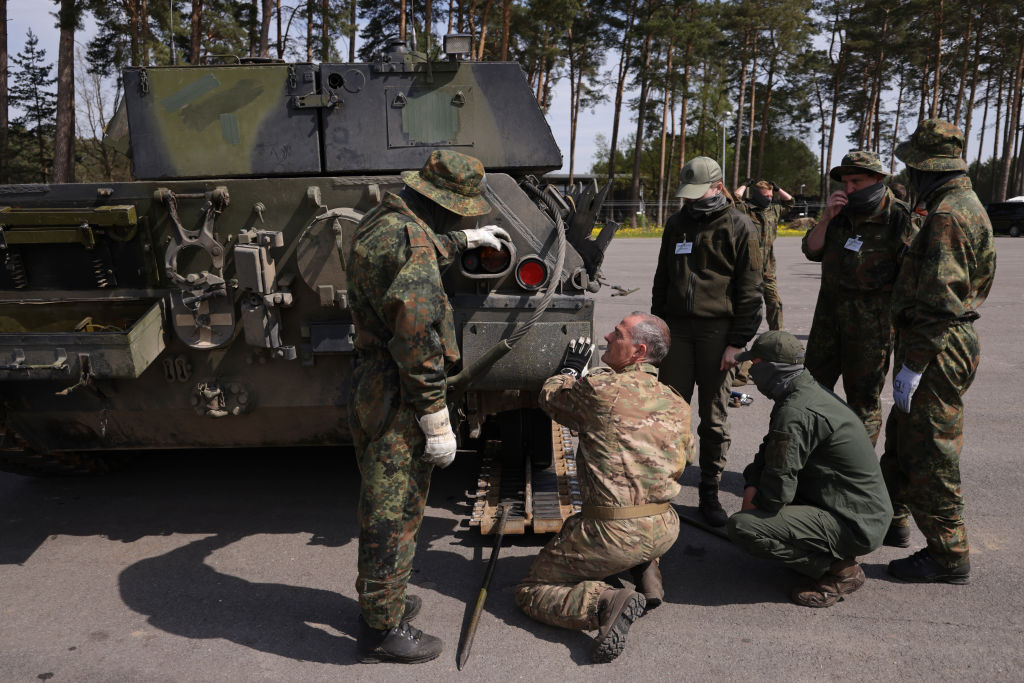The EU has done nothing to deserve winning the war in Ukraine.
We are nearly two years on from when Russia decided to launch a full-scale invasion of its democratic neighbour. Since then, we have learned a substantial amount about the state of global politics.
Russia’s underperformance militarily has undermined any idea that it maintains its status as a global superpower capable of challenging the United States.
By contrast, Ukraine’s stalwart defence shows how modern warfare seems to deeply favour defence, even when the defender is vastly outmatched by its assailant.
We have also learned that the European Union is utterly useless when it comes to fighting a proxy war.
Amid near-constant bluster about sanctions and efforts to bolster domestic energy production, Brussels has failed both in its attempts to dent the Russian war machine and in its efforts to reinforce its own strategic position.
Despite 12 separate rounds of EU sanctions against Russia, European countries largely continue to foot the bill for the enemy’s war machine.
For all the bluster about divestment coming from Brussels, the EU openly received 12 per cent of its natural gas from Russia in Q3 of this year. Imports of Russian Liquified Natural Gas even rose in 2023, spiking to an all-time high during the summer months.
Then there is the issue of Russian oil and gas entering Europe through third parties, despite sanctions. Other oil and gas-producing states get around the restrictions by selling all their domestically produced oil and gas to the EU at a premium while fuelling their economy with cheaper Russian imports.
In short, Russia continues to power Europe. This means more cash for Russian President Vladimir Putin to spend on tanks, bombs and missiles.
This would be forgivable if the EU was not able to fuel itself. If Europe was like Japan, for instance, lacking the domestic deposits of oil, gas and coal to keep itself running, then purchases from Russia could be seen as some sort of necessary evil.
This is not the case. Nations across the bloc have a wealth of fossil fuel deposits large enough to power themselves and their neighbours for decades.
Ireland, for instance, knows that it likely has more than 300 million barrels of oil at just one location off of its coast. Germany is estimated to have 32.4 billion cubic metres of natural gas that could be safely accessed through fracking.
Let us not even begin talking about the boatloads of oil deposits in Europe’s frigid north.
Yet EU states have failed to utilise these resources to their fullest potential. Ireland has not only left its oil deposits in the ground but has banned private firms from launching expeditions to look for more reserves. Germany has failed to invest in fracking technology.
Why the self-sabotage? Europe wants to save the planet by fighting climate change – a noble goal but one lacking any sense of realism.
The EU as a whole treats itself as the world’s saviour, using bureaucracy and regulation to right the wrongs of capitalism, imperialism and industrial development.
Yet, while the European Commission gives itself pats on the back for each fossil fuel project scuttled, another group of Ukrainian soldiers are sent to Kingdom Come by a Russian rocket funded by Europe.
How noble.
Eurocrats will be quick to claim that its “green” agenda goals are not only compatible with fighting the war in Ukraine but that they synergise with each other; more green fuel means less Russian gas burned.
This has not materialised. The past two years have shown that Europe, right now, is completely incapable of fulfilling its energy needs with renewables alone. Stats relating to Russian fuel imports into the EU prove that.
In short, the EU appears to be prioritising its desire to feel smug about itself rather than helping Ukraine.
This can be seen in more than just our backwards energy policy. Ask yourself: what are Europe’s exact goals for the Ukraine war?
The first and most obvious answer is that we want Ukraine to win – that much is obvious. But what does “winning” mean, exactly?
Does a reasonable, negotiated peace with Russia count as winning? What about a successful repulsion of all Russian forces from undisputedly Ukrainian territory?
The European Council website describes EU leaders as wanting Russia to “immediately cease its military actions, unconditionally withdraw all forces and military equipment from Ukraine and fully respect Ukraine’s territorial integrity, sovereignty and independence”.
Such a statement is vague. Does this mean we will be happy if Russia abandons the war but holds on to the cities of Luhansk and Donetsk?
Who knows?
Maybe Brussels will only be satisfied once Crimea, captured by Russia in 2014, is returned to Kyiv. Maybe Eurocrats will only be satisfied when Russian President Vladimir Putin is removed from power?
The only clear thing is that Europe does not appear to have a clue what it wants in this regard.
Brussels’ other goal in this conflict is expansion. The EU has its eyes on Ukraine and will not be satisfied until it is part of the union. That much is clear.
What comes after that? Leaving aside the fact that the admission of the Eastern State will cause chaos for Europe’s finances, the inclusion of the country will pose countless trade and security difficulties that have barely been discussed.
According to a German Government website, Ukraine boasts a border with Russia that measures more than 2,200 kilometres in length. Even if peace is well and truly restored, what security risks does such a frontier pose to our union?
We are already having serious problems with our Finnish border with Russia, let alone the numerous EU borders with Russian “client-State” Belarus.
Opening yet another border with a hostile Russia is bound to come with huge risk to European security. Are such risks worth it compared to the benefits of having Ukraine as an EU Member State?
Maybe – but it is not something many are talking about yet.
Compare the vagueness of Europe’s goals to that of other parties in this conflict. For all its faults, Russia has maintained a relatively stable view of the current war. Painting the so-called “special military operation” as an attempt to “de-Nazify” the country, Moscow wants to keep Crimea, seize Luhansk and Donetsk and implement pro-Russian regime change in the rest of Ukraine.
Failing that, a neutral Ukraine that serves as a buffer between it and the West will likely suffice in Putin’s eyes.
The US wants to take Russia – a key global rival – off the table when it comes to any possible future conflict in the Pacific. While Uncle Sam’s main worry today is China, Russia represents a nasty unknown, possessing a large enough military power to pose problems.
Russia’s war in Ukraine allows the US to see what modern warfare between two technologically capable superpowers looks like, as well as whittle down the military capability of a major rival.
It is understandable why the administration of US President Joe Biden does not seem to want it to end anytime soon.
With these goals in mind, both Russia and America can take clear steps to pursue their geopolitical goals, as well as concretely measure the success of their current policies.
The EU just finds itself throwing more and more funding at the problem in the hopes something sticks.
Of course, Europe does have internal structural issues that the other major players do not have. The EU, rightly, does not have a single unified foreign policy but Brussels’ attempt to pawn off its failings on the likes of Hungary, Slovakia or even Poland is laughable and only serves to paper over the solvable problems facing the union.
If there was a concrete plan for a victory in Ukraine, maybe Budapest would stop kicking up so much of a stink about war funding.
It must be said that, even with these problems, it remains relatively likely that the EU and its allies come out on top in this conflict. The Wagner Group of Russian-backed mercenaries’ mutiny earlier this year proves that we are just one “black swan” away from regime change in Russia.
No doubt other completely unexpected happenings await us in the near future, although what their impact will be remains shrouded by the veil of time.
If such a European victory does come, it will come despite the EU’s constant failings during this conflict. Our haphazard attempts at sanctioning Russia have failed – Moscow’s economy is growing while Germany’s shrinks.
In addition, not enough work has been done to detach Europe’s energy sector from the continent’s enemies.
What is keeping Ukraine in the game now is the grit shown by its soldiers combined with the support of the US. Without either of those two components, Russian tanks would likely be lining the streets of Kyiv right now. Both parties can take pride in that fact alone if nothing else.
Brussels though? Brussels has no claim to glory.
The EU has failed to firmly establish strategic goals in this conflict, let alone effectively act on them. The union has instead prioritised internal posturing, implementing style-over-substance regulations rather than prioritising real change. Its energy policy in particular has hurt its economy while jeopardising the position of its military allies in Ukraine.
Win or lose, the EU has truly fumbled its role in this fight for a free world.






